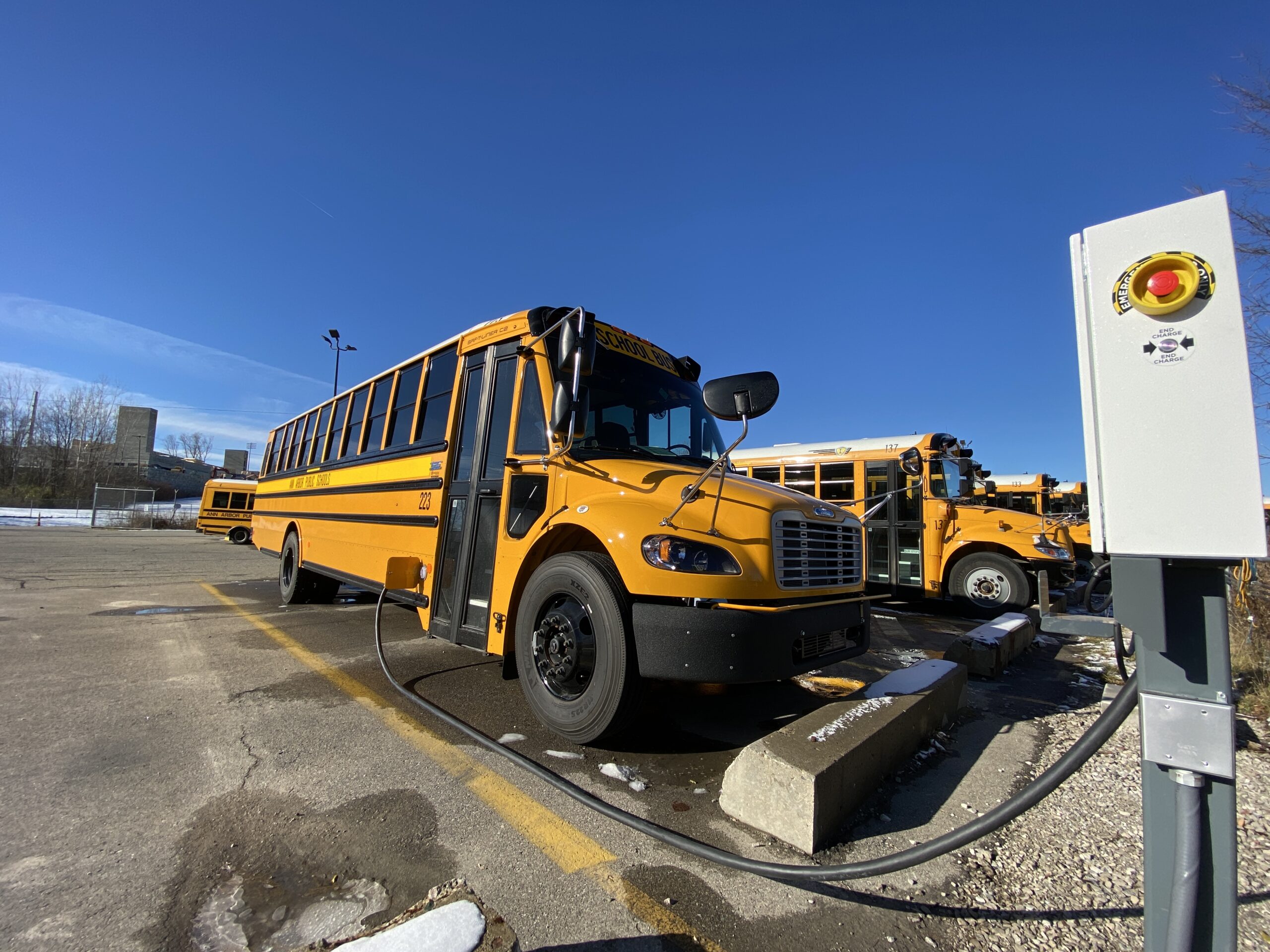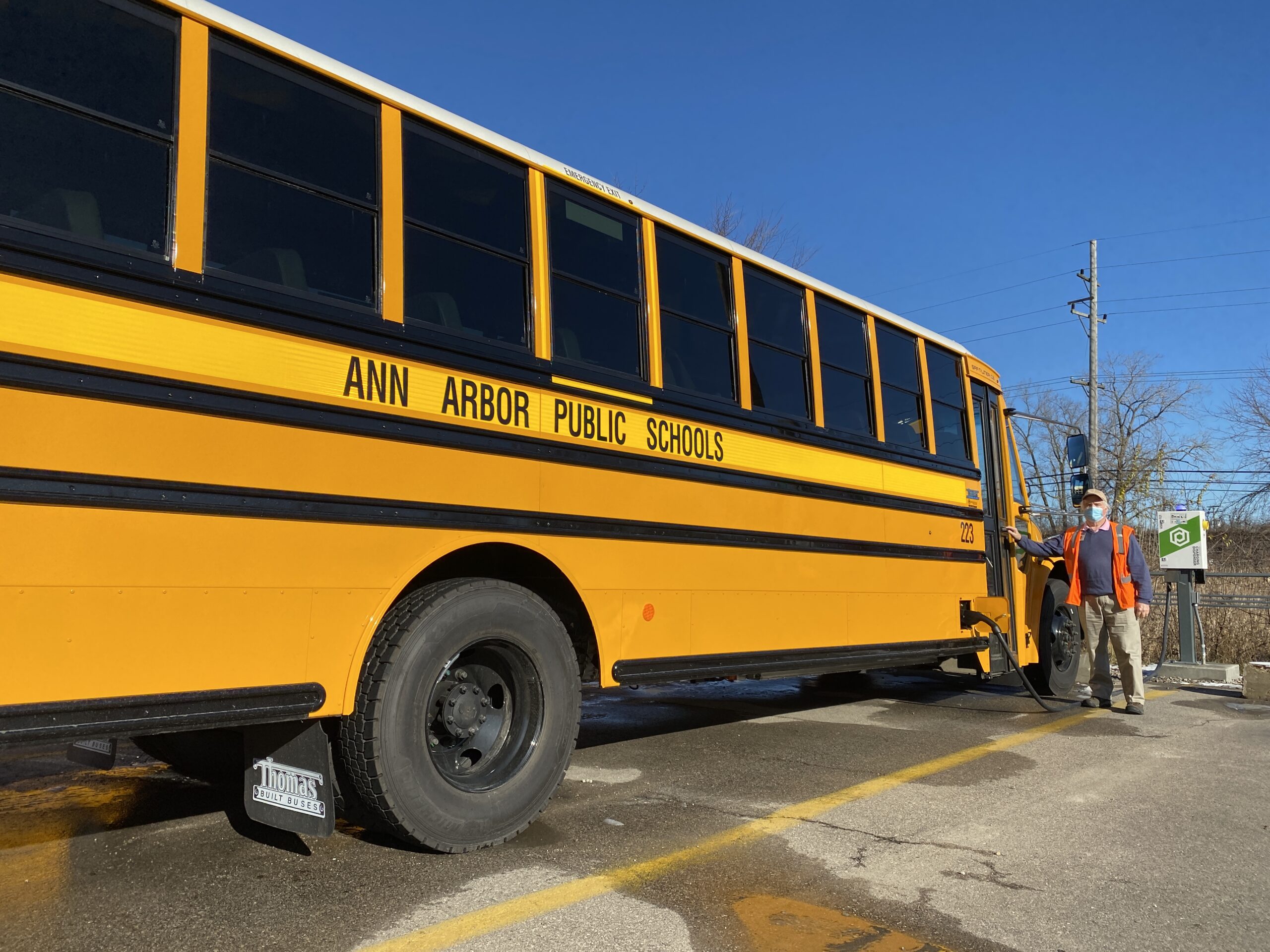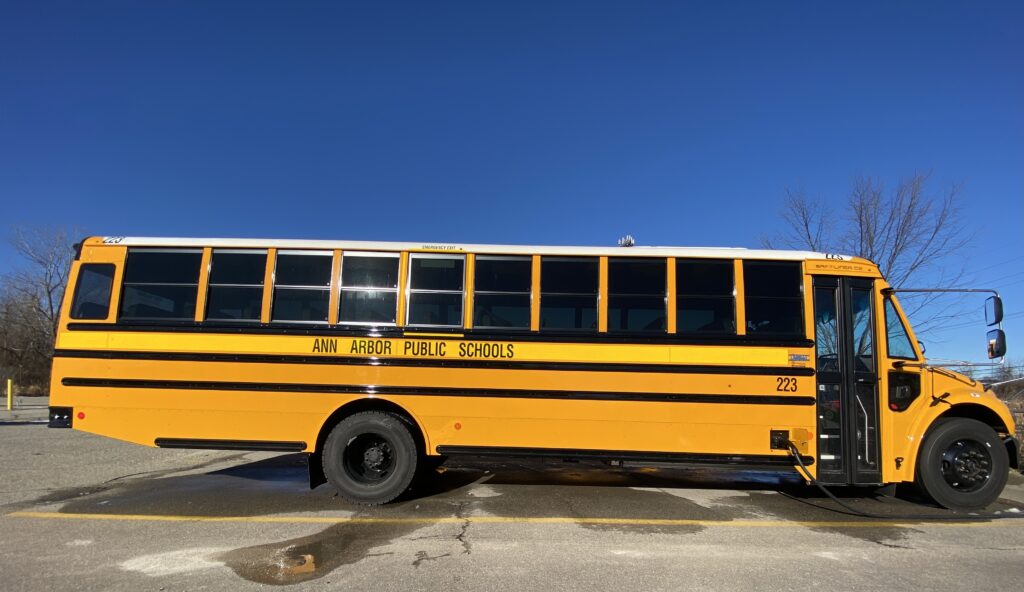Fleet of four new electric buses will allow the district to continue working toward environmental sustainability.
Story, photos and video by Jo Mathis/AAPS District News Editor
The school bus pulling into Pioneer High School next month might look a lot like the other buses in the food distribution fleet.
But listen closely and you may hear … well, not much.
That’s because it’s the district’s first bus that is powered not by diesel, but by electricity.

“Obviously as a planet, we’re trying to get away from the use of fossil fuels,” said John Nikolich, lead maintenance technician for Durham School Services, who began working at AAPS in 1980. “The fact that we can be at the front of this as a school district is just amazing. I have seen the district go from gasoline-powered buses that produced terrible emissions, to diesel-powered buses that produced unhealthy dirty soot, to the current diesel fleet that uses engines that control soot and are 90 percent cleaner than they were just 10 years ago.”

Nikolich said these buses take the district a significant step further.
“Now we’re lucky enough to have some of the first zero-emission electric buses in the state,” he said. “I feel fortunate to be a part of it.”
AAPS purchased the buses at a steep discount—each cost $103,159 compared to the regular price of $343,849—under a grant from the Michigan Department of Environment, Great Lakes and Energy which was partially funded by a Volkswagen mitigation settlement.

These new buses replace older diesel models, and will save hundreds of gallons of diesel fuel each year. Maintenance costs are expected to decline as well.
Ann Arbor Public Schools’ four electric buses are among the state of Michigan’s first fleet of 17 deployed this year throughout seven school districts, including Gaylord, Kalamazoo, Oxford, Roseville, Three Rivers and Zeeland.

Durham School Services General Manager Ed Gallagher said he expects maintenance costs to be less for the electric buses compared to diesel-powered. and the cost of electricity should be significantly lower than buying fuel over the long run.
The four electric buses are among 27 new buses recently purchased by the district to replace aging buses. As a result, 23 older buses will be sold at auction. The four that were replaced by the electric buses must be scrapped as part of the grant requirement.
The buses will be used on routes in which they are most visible, said Gallagher. Two days of virtual training were held this week for mechanics and staff, and drivers will be trained later.


Be the first to comment